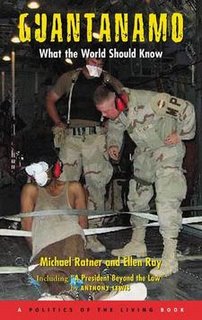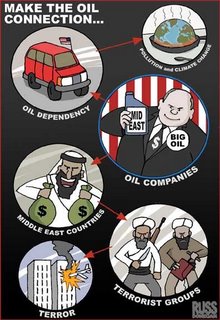American Historical Amnesia
 Iran-Contra Affair
Iran-Contra AffairFrom Wikipedia, the free encyclopedia
Jump to: navigation, search
The Iran-Contra Affair (also called the Iran-Contra Matter and Iran-gate) was one of the largest political scandals in the United States during the 1980s. [1] The affair is still shrouded with secrecy and it is very hard to discover the facts. It involved several members of the Reagan Administration who in 1986 helped sell arms to Iran, an avowed enemy, and used the proceeds to fund the Contras, an anti-communist guerrilla organization in Nicaragua. [2]
After the arms sales were revealed in November 1986, President Ronald Reagan appeared on national television and denied that they had occurred.[3] However, a week later, on November 13, he returned to the airwaves to affirm that weapons were indeed transferred to Iran. He denied that they were part of an exchange for hostages. [4]

Both the sale of weapons to Iran and the funding of the Contras attempted to circumvent stated Administration policy and legislation passed by Congress, known as the "Boland Amendment", enacted over concerns of widespread human rights abuses by the Contras.[15] Administration officials argued that regardless of the Congress restricting the funds for the Contras, or any affair, the President (the administration) could carry on by seeking alternative means of funding such as private entities and foreign governments.[16]
 Released on April 13, 1989, the Kerry Committee report concluded that members of the U.S. State Department "who provided support for the Contras were involved in drug trafficking...and elements of the Contras themselves knowingly received financial and material assistance from drug traffickers." [17]
Released on April 13, 1989, the Kerry Committee report concluded that members of the U.S. State Department "who provided support for the Contras were involved in drug trafficking...and elements of the Contras themselves knowingly received financial and material assistance from drug traffickers." [17]Furthermore, "the Contra drug links included...payments to drug traffickers by the U.S. State Department of funds authorized by the Congress for humanitarian assistance to the Contras, in some cases after the traffickers had been indicted by federal law enforcement agencies on drug charges, in others while traffickers were under active investigation by these same agencies." Houses of the Congress began to raise questions about the drug-related allegations associated with the Contras, causing a review in the spring of 1986 of the allegations by the State Department, in conjunction with the Justice Department and relevant U.S. intelligence agencies.[18]
As reported in The Wall Street Journal on January 29, 1997 [19], activities at the Mena, Arkansas airport allegedly involved then-governor Bill Clinton in a coverup of illegal drug-trading activity. The Wall Street Journal article goes on to state:
At the center of the web of speculation spun around Mena are a few undisputed facts:
One of the most successful drug informants in U.S. history, smuggler Barry Seal, based his air operation at Mena. At the height of his career he was importing as much as 1,000 pounds of cocaine per month, and had a personal fortune estimated at more than $50 million. After becoming an informant for the Drug Enforcement Administration, he worked at least once with the CIA, in a Sandinista drug sting. He was gunned down by Colombian hit men in Baton Rouge, La., in 1986; eight months later, one of his planes--with an Arkansas pilot at the wheel and Eugene Hasenfus in the cargo bay--was shot down over Nicaragua with a load of Contra supplies. ...

The scandal was compounded when on November 21, Oliver North and his secretary Fawn Hall shredded pertinent documents. US Attorney General Edwin Meese admitted on November 25 that profits from weapons sales to Iran were made available to assist the Contra rebels in Nicaragua. On the same day, John Poindexter resigned, and Oliver North was fired.[22] Poindexter was replaced by Frank Carlucci on December 2, 1986. [23]
Carlucci is now the CEO for Carlyle, a firm heavily vested in military industrial stock.

George W. Bush appointees
George W. Bush selected some individuals implicated in the Iran-Contra scandal for high-level posts in his presidential administration.[28][29] They include:
Elliott Abrams:[30] under Bush, the Special Assistant to the President and Senior Director on the National Security Council for Near East and North African Affairs; in Iran Contra, pleaded guilty on two counts of unlawfully withholding information, pardoned.
Otto Reich:[31] head of the Office of Public Diplomacy under Reagan.
John Negroponte:[32] under Bush, the National Intelligence Director.
Admiral John Poindexter:[33] under Bush, Director of the Information Awareness Office; in Iran Contra found guilty of multiple felony counts for conspiracy, obstruction of justice, lying to Congress, defrauding the government, and the alteration and destruction of evidence, convictions reversed. (Poindexter, you may remember, is the Dr. Strangelove who was developing a terror prdouctions system that allowed one to bet on who would killed next, allowing all to profit from the American system.
Robert Gates: [34] under Bush, confirmed on December 6, 2006 as the new Secretary of Defense to replace the resigning Donald Rumsfeld. Served as Director of Central Intelligence from 1991–1993 under George H.W. Bush. In Iran Contra he was Deputy Director of Central Intelligence.
Charles E. Allen: [35] under Bush, appointed in August 2005 to be chief intelligence officer at the Department of Homeland Security. Allen's position at DHS was not subject to Senate confirmation. Prior to the DHS appointment, Allen had worked 47 years at the CIA. Director of Central Intelligence William Webster formally reprimanded Allen for failing to fully comply with the DCI's request for full cooperation in the agency's internal Iran-Contra scandal investigation.
[edit] Contra drug links
See also: CIA and Contra's cocaine trafficking in the US
From the 1980s onward, allegations were made that the Contras were being funded through cocaine distribution.
One of the earliest such allegations was contained in a lawsuit filed in 1986 by two journalists represented by the Christic Institute, alleging that the CIA and other parties were engaged in criminal acts, including financing the purchase of arms with the proceeds of cocaine sales.[36] The suit was dismissed; several of the named participants subsequently sued the Christic Institute for libel and won.
Senator John Kerry's 1988 U.S. Senate Committee on Foreign Relations report on Contra drug links concluded that "senior U.S. policy makers were not immune to the idea that drug money was a perfect solution to the Contras' funding problems."[37] Kerry was suspicious of North's connection with Manuel Noriega, Panama's drug baron. According to the National Security Archive, Oliver North had been in contact with Noriega and had met him personally.
In 1992 U.S. President George H.W. Bush pardoned persons involved in the scandal.[38]
The allegations resurfaced in 1996 when journalist Gary Webb published reports in the San Jose Mercury News[39], and later in his book Dark Alliance[40], detailing how Contras had distributed crack cocaine into Los Angeles to fund weapons purchases. These reports were initially attacked by various other newspapers, which attempted to debunk the link, citing official reports that apparently cleared the CIA.
In 1998, CIA Inspector General Frederick Hitz published a two-volume report[41] that substantiated many of Webb's claims, and described how 50 Contras and drug traffickers had been protected from law enforcement activity by the Reagan-Bush administration, and documented a cover-up of evidence relating to these activities. The report also showed that Oliver North and the NSC were aware of these activities. A report later that same year by the Justice Department Inspector General Michael Bromwich also came to similar conclusions.
In 2004, Gary Webb allegedly committed suicide by shooting himself twice in the head.
[edit] See also
Allegations of state terrorism by United States of America
Barry Seal
CIA drug trafficking
List of Pardons and Commutations by President George H. W. Bush
Orlando Letelier
Operation Condor
Swedish Prime Minister Olof Palme's 1986 murder
Nicaragua v. United States, indictment by the International Court of Justice
US/Saudi AWACS Sale
War on Drugs


0 Comments:
Post a Comment
<< Home